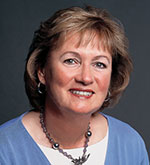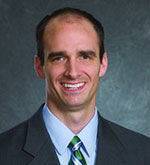Pest Management Professional (PMP) asked the president of RISE (Responsible Industry for a Sound Environment) and the executive director of the National Pest Management Association’s Professional Pest Management Alliance (NPMA’s PPMA), how our industry should respond to the headline-grabbing topics of pesticides, pollinators and the mosquito-borne Zika virus.

Cindy Mannes
PMP: The recent coverage of the dangers of the Zika virus to humans, particularly women of child-bearing age, has led to many communities increasing their spraying for mosquitoes. As a result, there has been media coverage of the potential danger posed to pollinators. Most pest management professionals (PMPs) have little to do with community-based blanket spraying. Still, when their customers ask them about what’s going on, what do the NPMA and RISE recommend as an appropriate response?
MANNES: PMPs should stress the importance of hiring firms with experience. We advise our members and the industry to open the lines of communication with customers. It’s also important for companies to ensure all employees in the field are up to speed on best management practices (BMPs) for treatments as they relate to pollinators and are well versed in key messages when communicating with concerned customers. To that end, NPMA’s PollinatorFacts.org offers a plethora of information, including BMPs, pollinator label guidance, a pollinator training webinar for members, and more. There is also consumer information on this site.
HOBBS: Public health protection is job one for our industry, with many layers of protection against Zika virus transmission being delivered by the U.S. Centers for Disease Control and Prevention, effective adulticide and larvicide treatments by mosquito control districts and public health officials, and more localized treatments made by professional applicators and people with do-it-yourself solutions such as topical repellents. Consumers should know we have the most sophisticated mosquito control programs in the world in the United States, being conducted by well-trained and licensed professionals.
PMP: Beyond following the label, are there other safeguards PMPs can implement regarding protecting the public from Zika?

Aaron Hobbs
HOBBS: While treatments have increased significantly in Florida — and now, flood stricken Baton Rouge, among other southern locations — as of mid-September there has been only one report of an incident involving bees that is still under investigation. Mosquito control, both aerial and ground-based, is done every day here in the United States and the professionals who do it are experienced and well trained in integrated mosquito control.
MANNES: I think it’s important to consider the NPMA’s Statement on Pollinator Health, which is as follows:
Pollinators play an essential role in the nation’s food supply chain. We are dependent on bees, flies, moths and other insects to help pollinate crops. However, some of these insects — bees in particular — are also known to pose health and safety risks to the public. In fact, stinging insects send an estimated 500,000 people to the hospital every year. They are the leading cause of anaphylaxis-related deaths in the United States. In light of this, bees are — and some government entities have deemed them — a public safety hazard.
So how do we, the American public, protect our families and our children from these insects that are both vital and potentially harmful? The answer is carefully. The federal government, farmers, the professional pest management industry, and home and business owners must cooperate together to ensure effective tools are available to keep the public safe from stinging insects, yet do so in a manner that will enable pollinators to thrive in appropriate settings.
The NPMA is working with the EPA, state regulators, and other stakeholders equally committed to ensuring an appropriate symbiotic relationship exists between the safety of the American public and the essential role bees play in agriculture.
Editor Heather Gooch can be reached at hgooch@northcoastmedia.net or 330-321-9754.
Leave A Comment